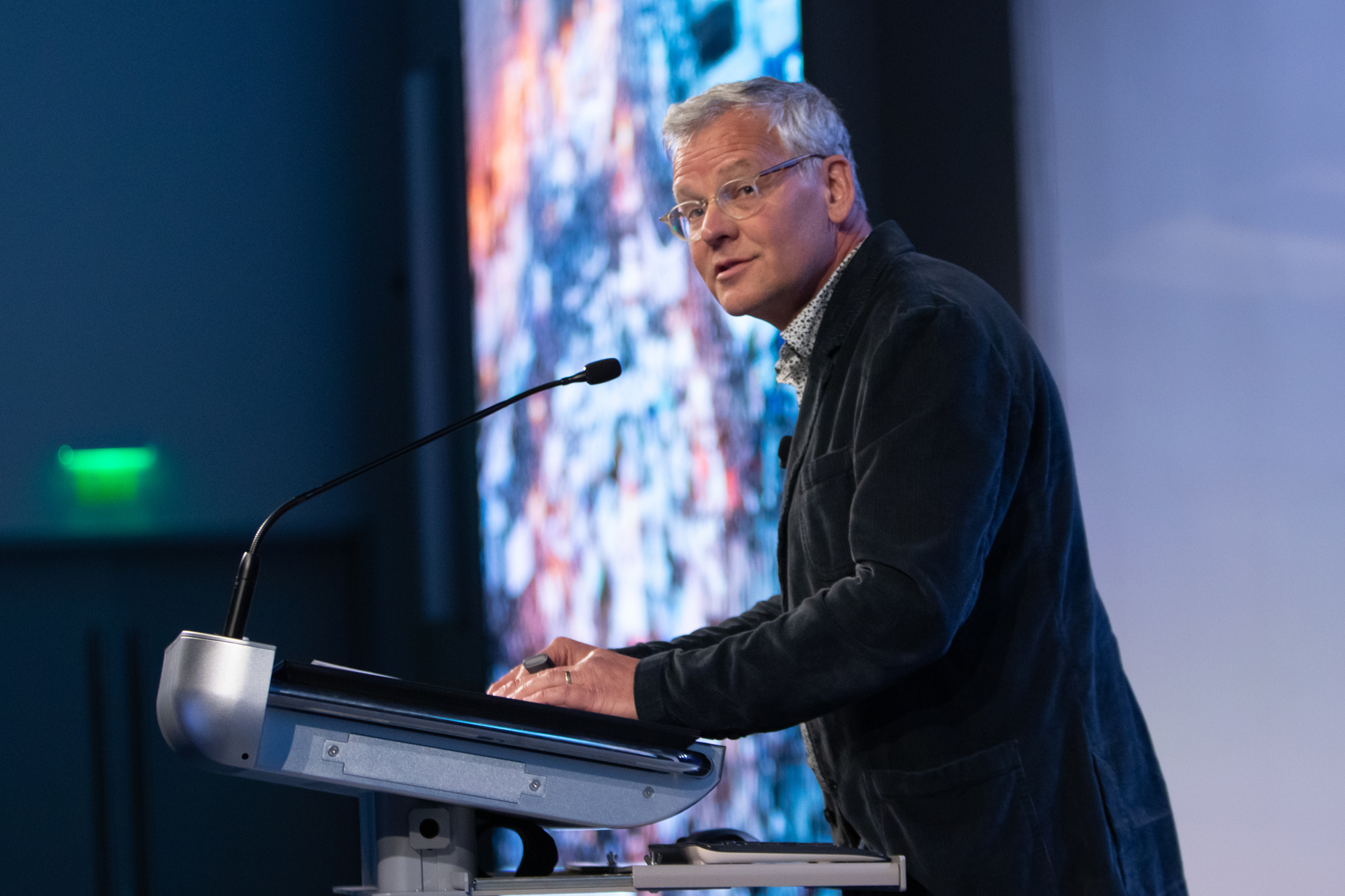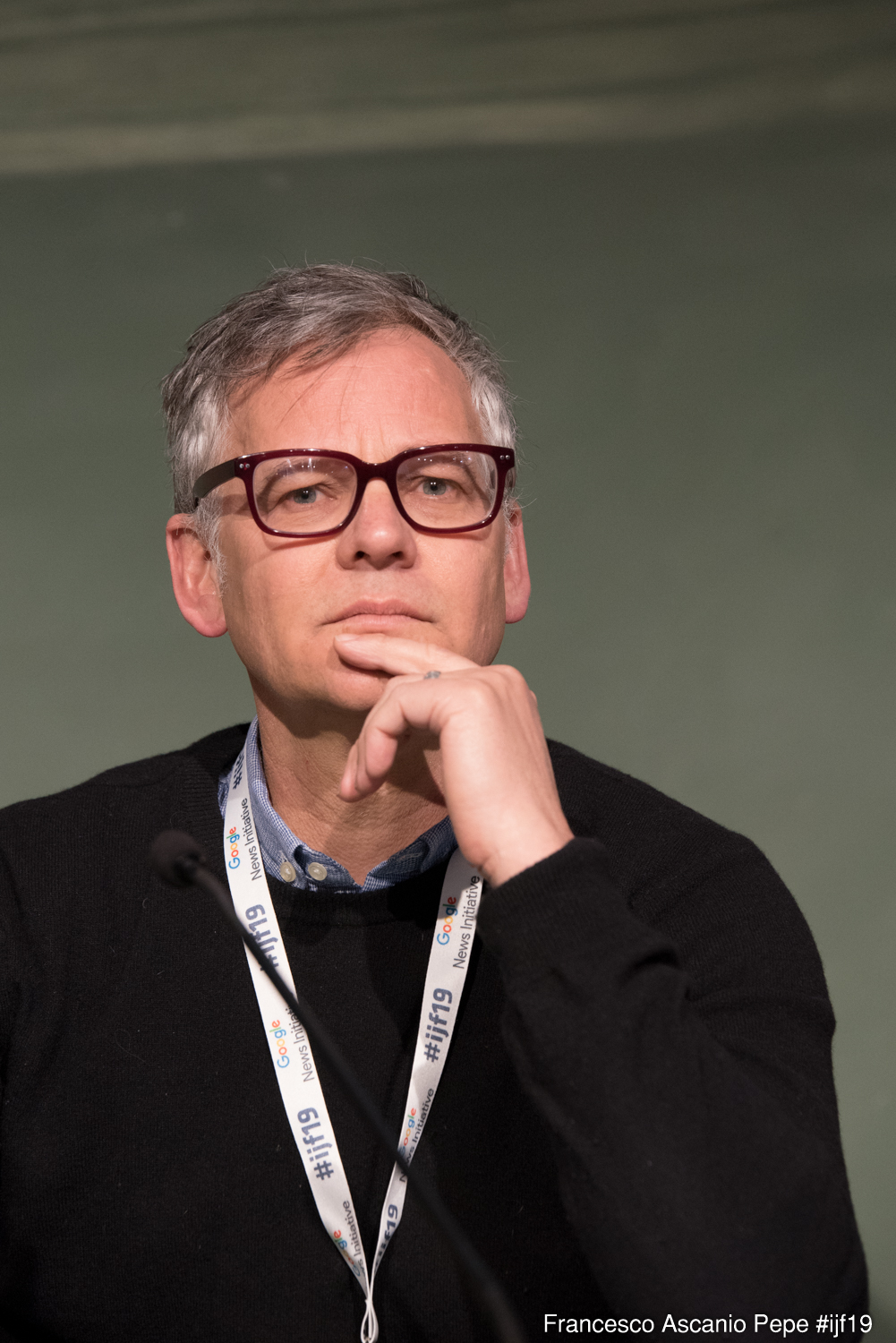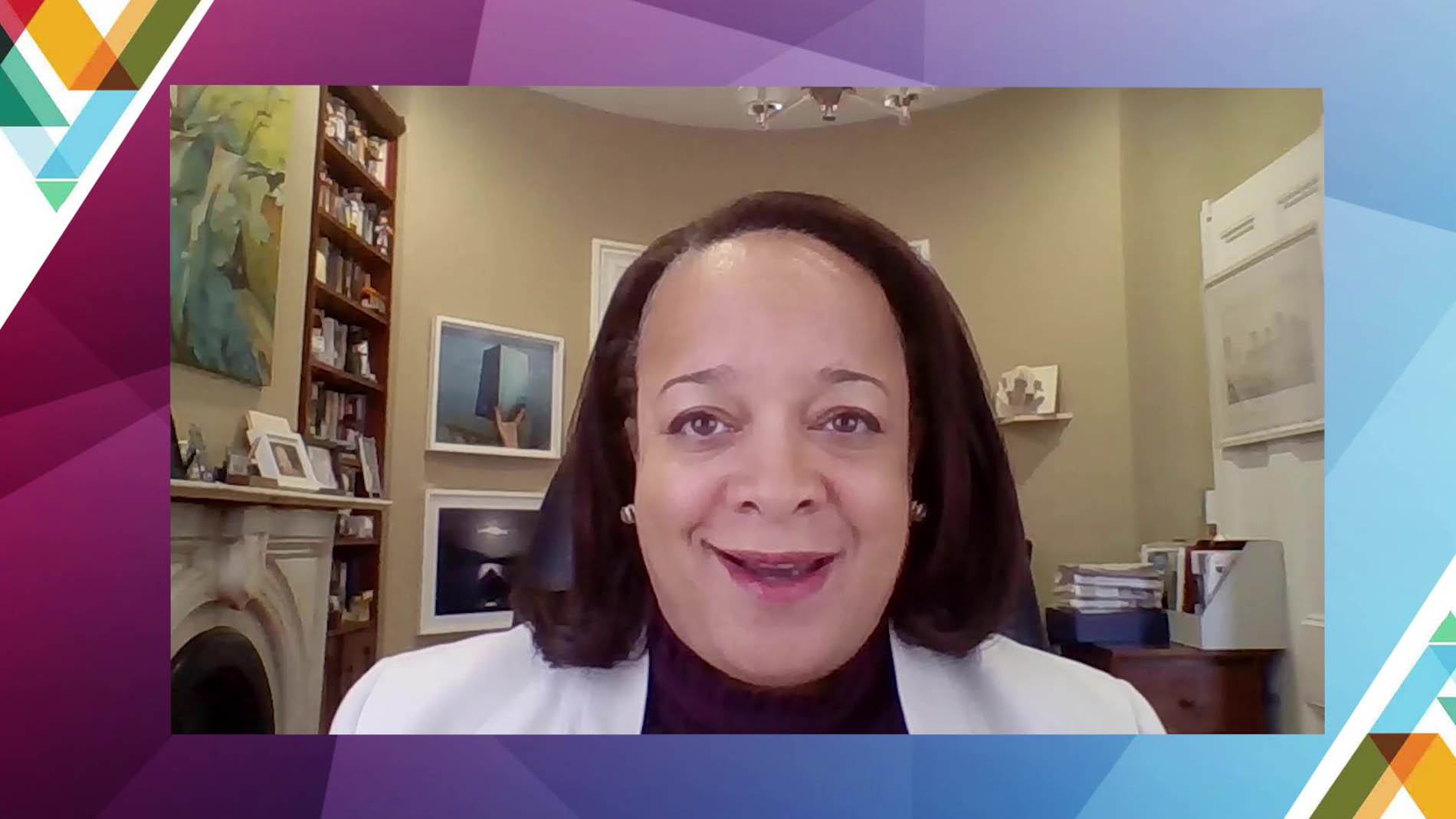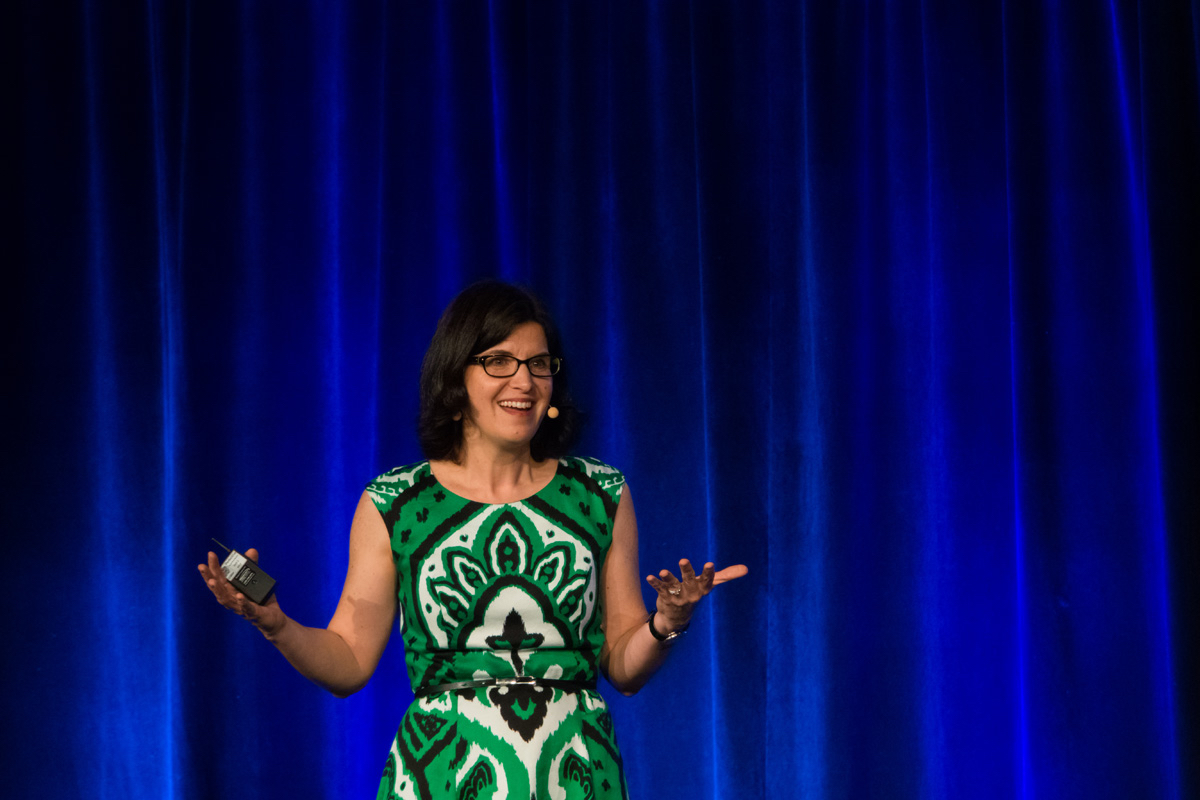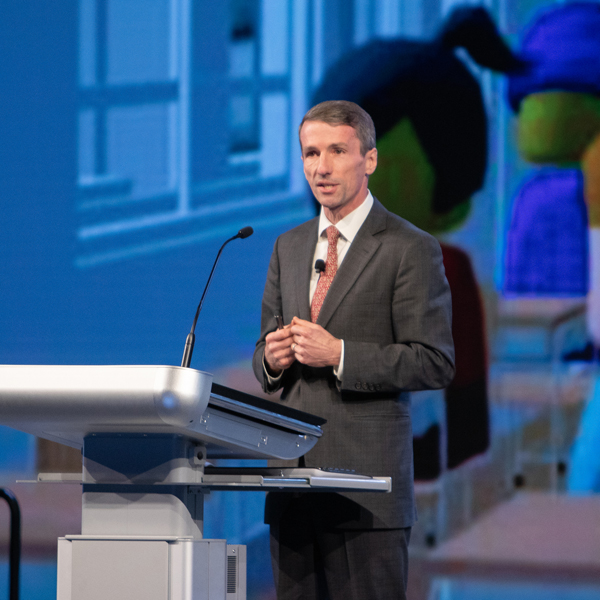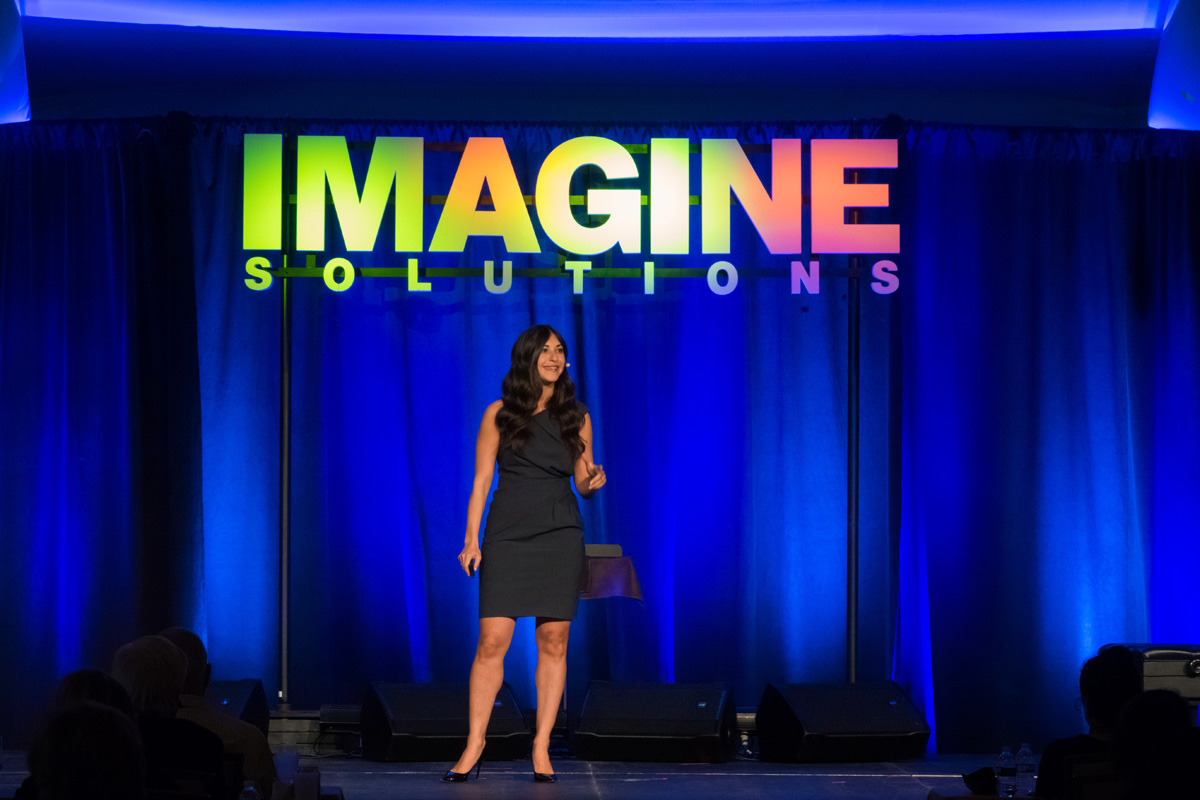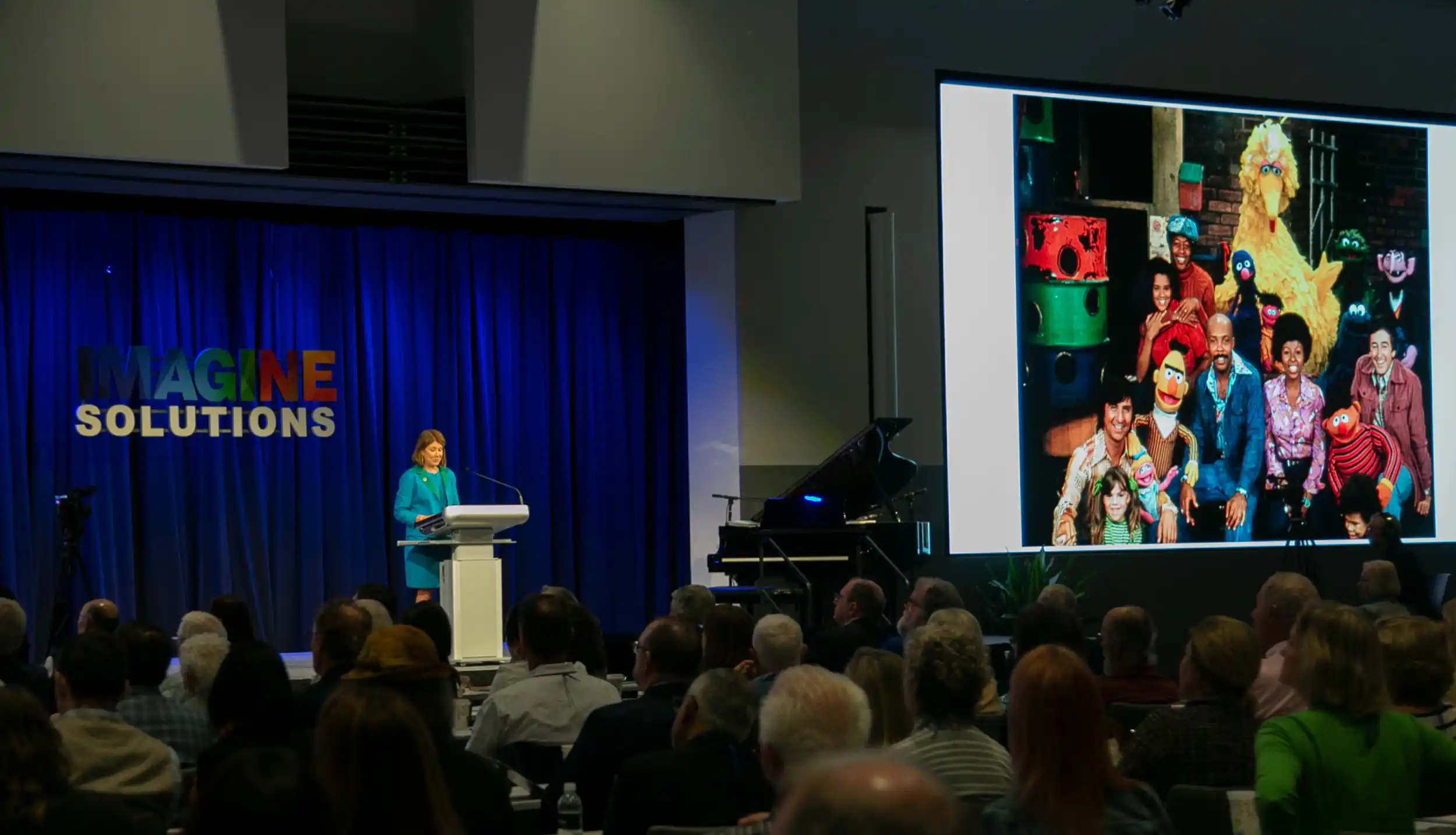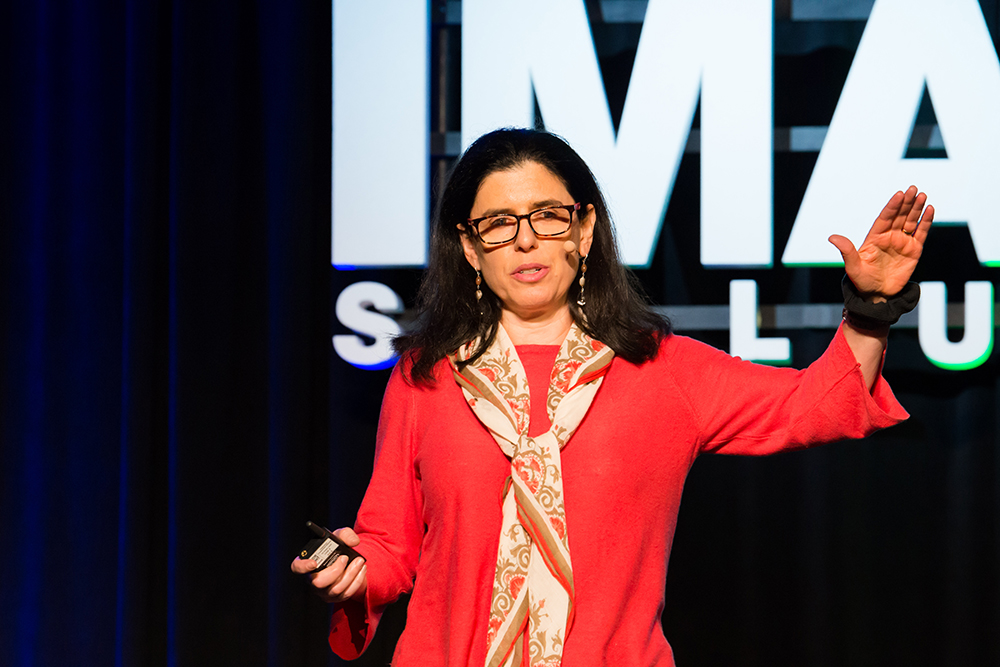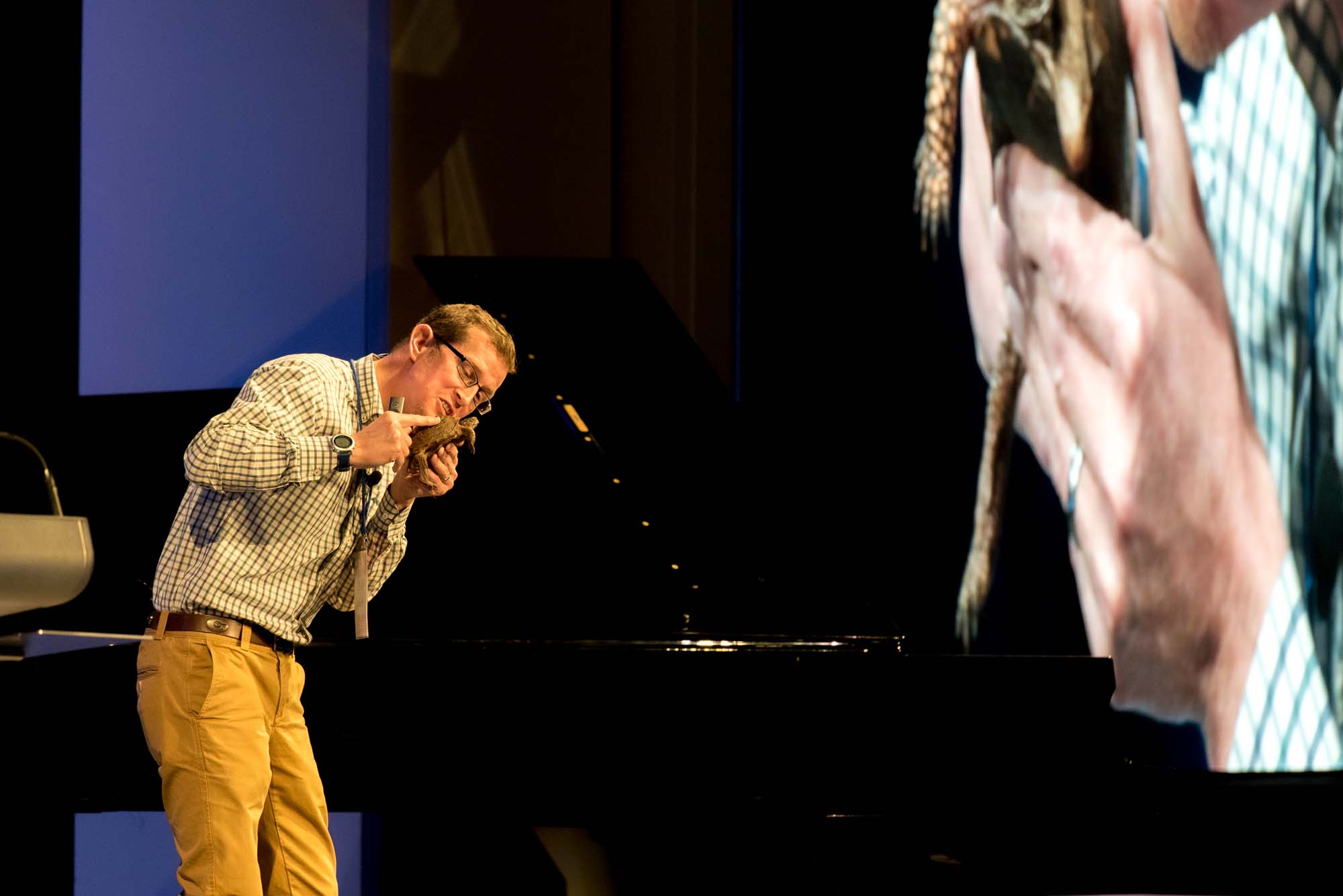Empowering Journalists, Scientists and Community Leaders
Ed Bice challenged the audience to consider what truth means in the digital age. As founder of Meedan, he works at the intersection of journalism, technology, and global trust-building. Bice shared how his platform helps verify facts, counter disinformation, and support ethical journalism around the world. With real-world case studies and thought-provoking questions, his talk inspired audiences to rethink how we consume and share information. In a world flooded with noise, Bice offered tools—and hope—for navigating it with integrity.
00.00
[Music] well we uh folks have almost reached the end of the trail but there is one more highlight to go and that will come from a gentleman named Ed Bice he works at the intersection of technology and ethics and social good he is not a scientist as such in fact he's he's one of the few people who had joined us today who is not a neuroscience scientist at all his degree is in of all things philosophy now that's what we need more of we need more philosophers right the heck with the data scientists the heck with the computer programmers bring us more philosophers he runs a nonprofit called Meen and he has dedicated his career to developing digital and other tools to help journalists scientists community leaders find that most elusive of commodities in today's information ecosphere truth to find out more about what he does and how he does it please welcome to the stage
01.01
the winner of the 2024 Skull Award for Social Entrepreneurship Edice [Music] all right um hello everyone good afternoon um I am pleased to uh be the final speaker standing between you and uh the evening so um I'm planning to take about an hour and a half with my remarks and I hope you don't mind um I I as you may have noticed I've prepared remarks and uh uh the reason I've prepared and am going to be reading remarks is that I've spent much of the last three weeks uh trying to keep my organization afloat so I'm going to continue the theme and say that as a National Science Foundation funded
02.02
organization uh the changes and the challenges to our research ecosystem uh the the uh challenges that that we're facing are are existential and uh the cost to the audience today is that you're going to have to read some halting remarks that I'm reading uh from a page instead of a uh casually uh memorized uh uh and and uh um eloquent uh uh presentation so forgive me for that uh thanks for having me here um I often describe Midan as a context project um so I'm going to start and add to the context I've already started um we are gathered here at a moment uh when our information ecosystems are experiencing unprecedented disruption journalism is facing existential
03.02
challenges and artificial intelligence is rewriting the rules of how we access and consume knowledge um a little on my personal context um my journey to this stage began uh 22 years ago on the streets of San Francisco where I had gone to protest the first day of the war in Iraq uh I was arrested on the street and that experience uh sparked me to commit my life to the fundamental challenge of how it is that we come to understand the events that shape our world across cultural linguistic and ideological boundaries and with this uh to explore the critical importance of accurate contextual information in shaping public
04.00
understanding during moments of crisis our design response to that moment at approximately the same time that the social internet was being hatched that Facebook was a a uh um uh co-ed uh dating site essentially um uh on the Harvard campus was to propose a social network to geollocate translate and annotate any excerpt from any web page on the internet my younger uh self somehow had enough moxy and luck to convince uh the MacArthur Foundation and IBM Research to fund a multi-year effort to build uh this uh overly complex uh web application um and that work was supported by a team of engineers that we hired to work from Cairo Egypt in
05.01
2007 which meant that we started our project uh three years four years in front of uh a moment of history we had a front row seat uh to this remarkable revolution um during that revolution we worked around the clock with a team of 300 translators um we partnered with Google and Twitter on the project and we translated thousands of voice messages into five separate languages um and and also translated a lot of social media content from Twitter from YouTube uh and from Facebook uh when the dust settled on that uprising a dictator had lost his power to a set of techies and bloggers whose protests had captured the imagination of a population who had silently tolerated decades of corruption repression and poverty
06.00
we did not recognize at the time that this would be the moment of peak social internet optimism but we did recognize that this new era of decentralized citizengenerated media was missing something it was missing a verification layer we didn't know if the content that we had been sharing translating distributing was authentic or whether it was uh the fabrication of a of a um a pro-administration uh advocate so we wrote a successful proposal to take some of the ideas that we had worked on around crowdsource translation and uh um work on crowdsource verification and factchecking just as we were uh 5 years early to the Arab revolutions um median was 5 years early to the internet's reckoning with misinformation um we uh and and I'll I'll add to that
07.03
we were we were uh 18 months early to the pandemic we wrote a proposal to respond to pandemic information in 2018 here's uh a timeline of of how the work has gone since then um so the the uh code that we wrote following Arab Spring was called Checkes and it was basically a tool to collaboratively allow journalists to uh fact check and verify social media um this technology has powered um a number uh actually most of the largecale journalistic interventions uh uh uh during elections uh public health crisis and and natural disasters uh over the last 20 years um and last year we're recognized as as was mentioned with the skull award for social innovation um today we're
08.02
supporting partners in 68 countries around the world um and uh I'll just mention a couple of notable projects um that that have led us to where we are now uh that that uh led us to the notion of a community knowledge hub uh first off Electionland uh in uh 2016 uh election land ran on our software enabling,00 journalists to work together on election day uh uh working to verify and fact check disinformation on social media during that contested election we we replicated the model in 2018 uh and we brought together 80 media partners to fact check uh 90 plus sorry uh fact check myself uh to fact check presidential candidates uh on the campaign trail as an afterthought we set
09.02
up a WhatsApp number a messaging number to receive tips from citizens uh on their mobile phones um uh what it meant was that journalists were literally passing around one phone in the newsroom and responding to these uh to these citizen requests um and uh that line generated enough uh information that it uh knocked over the WhatsApp small and medium business application we were using um that project showed us the power of collaborative journalism uh our coalition of newsrooms reached millions of voters who wanted accurate trustworthy information about the candidates and the electoral process the candidates began to refer to Verifado on the uh by name on the campaign trail saying that they needed to watch what they were saying because they knew they
10.01
were going to be uh that we were going to be fact-checking their statements kofian hailed the project as groundbreaking we won our second OA award the highest award given in journalism um but knocking over the WhatsApp app also uh called attention to something bigger something more universal for people all over the world messaging apps have become the primary avenue for seeking information and when you offer people a source they can trust they lunge for it we weren't the only ones to realize this soon after the election um upper management from WhatsApp reached out and they asked us if we'd be interested in taking their money uh to integrate our software with their business API and uh we said yes of course um and since then that's really guided our our engineering development um we run the program now
11.02
that is uh um supporting 40 uh major media partners around the world who are doing work over WhatsApp uh to respond to citizen information needs um that project is organized as uh the WhatsApp factchecking thirdparty factchecking program uh in January of this year uh Mark Zuckerberg pulled the plug on these programs uh in the US uh our US partners are soon to be off the program uh citing bias and shifting cultural norms on free speech and while we can debate the question of bias and factchecking and I'm I'm very open to that debate I would contend that there's not a person in this room who wants to base critical medical or financial decisions on content that is intentionally misleading
12.01
we should reflect on the fact that online ad markets mean that I can purchase and therefore control the meaning or of a phrase or a word and target my intended outcome whether that's support outrage conspiracy or sympathy to a target demographic we can bend language the corporate infrastructure for social media allows us to bend language and attention we need to reflect on that do these corporate shareholder valued-driven information infrastructures serve the fundamental need for a well-informed society or is that just a quaint notion of a time before the evolutionary rise of the attention economy and and the WWE smackdown era of media politics and perhaps knowledge i would contend that we cannot rely on private platforms to serve public knowledge
13.02
interest and into this we add Gen AI as a content creation accelerant uh but also for as a new infrastructure for knowledge delivery so how's that going google's Gemini uh told users that geologists recommend eating at least one rock per day it also suggested that if you want your pizza sauce to stick a little better to the crust you should add some glue uh to increase the tackiness of the cheese uh where did these ideas come from anyone you're from the internet the training data for the AI was the internet and
14.00
they hoovered in uh the uh satirical article on the onion uh that that talked about uh uh Cal Berkeley geologist suggesting a rock a day is is uh keeps the doctor away um and uh the the uh glue in the pizza recipe was uh came from Reddit and there was a uh a long thread on a hilarious uh obviously satirical post uh made uh by a pizza chef um so these point to fundamental issues with commercial AI um first off these these systems are trained with the totality of internet content um and and uh e even being trained on organic content and they're going to be increasingly trained on synthetic content um even even being trained on human content they're they uh
15.01
have little discrimination uh uh for context uh the goal is to build generalized systems that scale to a global population by ingesting all uh digital knowledge this is a problem um second what happens uh between that data ingest and the output is a black box uh it's not in a company's interest to share model weights and to show us how that AI sausage is made third most AI platforms don't provide citations uh this makes it impossible to verify their sources or check their work the implication is that we should just trust them uh but we should know better by now ai problems like recommending glue on pizza or eating rocks for your breakfast might seem silly but consider a more serious situation chinese AI startup
16.01
Deep DeepSeek made waves last month with with its release of a new low bandwidth approach to gener generative AI but Deepseek uh when asked uh about the 1989 Tianan Square uh massacre or protest depending on how you frame it uh as asked to talk about something else okay um Meta's algorithms have been implicated in amplifying threats of violence contributed to the Rohingya genocide a single individual who has broad authority within the US government also owns and is one of the most widely distributed voices on one of the largest and most influential social media platforms on earth big tech CEOs or state actors as the case may be have every reason to make these information platforms suit their interests what does that mean for
17.00
the public what does that mean for your own communities these questions are driving forces for us at median our answer lies in our mission of building a different more equitable kind of information ecosystem against this troubling landscape I want to share two powerful examples actually maybe one given the countdown um Syrian archive is a public database containing five million images of videos from Syria's civil war throughout that war Syrians recorded and uploaded these images and videos to the internet mainly using platforms like YouTube and Facebook uh our partners at Syrian Archive understand the context and the stakes of preserving this information they've painstakingly collected verified annotated and archived this material for more than a decade projects like Syrian archive point to a
18.01
new kind of public information space one not built on Silicon Valley's attention economy models but organized on con context legal significance and cultural meaning um another example friends at documented NY who are uh messaging with their users over WhatsApp uh and spend half of their time in communication in text communication with their readers this helps them understand what they should be covering and helps them understand their audience a lot better understanding user needs knowledge and questions and leveraging two-way conversations to build powerful knowledge base it drives uh a newsroom that serves its readers needs and research from Pew recent research has shown that Americans trust their local local news outlets more than they do national ones this is actually uh something that that uh cuts across uh party lines both it's true for both
19.00
Democrats and Republicans this brings me to the future community knowledge hubs imagine a world where organizations like the Syrian archive and documented build their own AI systems that would organize the knowledge they possess and constantly iteron iterate on everything that they take from readers collaborators social media platforms and public records imagine AI knowledge systems that hold and organize deep contextual knowledge and that are built from the ground up by the communities that generate and need that knowledge where people have genuine ownership and control of their collective data when technology serves human re needs rather than corporate profits this isn't a far-off dream at Midan we are beginning to build the technical infrastructure for a AI knowledge hubs where journalists researchers community leaders and topic experts can co-create equitable AI systems how it works uh this slide uh
20.00
our software is already used by media and civil society groups to organize two-way messaging with their readers and to structure that data into to train chat bots it helps scale news distribution we're building out uh this to incorporate public data and other key resources we believe will radically change the way such organizations engage with their audience consider for instance the water crisis in Jackson Mississippi where a combination of local mismanagement of resources and climate change left the city's 153,000 residents at risk of lead poisoning and having their water shut off our partners at Mississippi Mississippi today have covered the crisis relentlessly drawing on public data consulting with health and government experts and soliciting input from local residents we propose to supercharge the scale reach and impact of systems like this through an AIdriven software model that can any organization can adapt and develop based on their own
21.02
interests priorities and knowledge uh this isn't about making AI better uh better AI it's about creating a more equitable information ecosystem that serves human needs rather than corporate profits uh this is uh our rough timeline for implementing uh the project we aim to serve uh 100 million end users by 2030 um and our approach is to develop uh and deliver software to community partners who are going to view this sort of software the ability to create their own chat bots um as being as critical to their mission as was setting up a website in the 1990s so we we see this communitydriven chatbot development as being very much uh uh parallel to how we
22.00
thought about setting up websites um and uh so final slide the rise of generative AI represents as significant a platform shift as social media and the internet uh mobile internet did 10 years ago we're moving from the index to the agent from knowledge as universally accessible to knowledge as universally invocable from the query to the prompt from content to conversations uh at Midan we believe uh or I'm sorry what's endangered in this new world is the hyperlink and with it our ability to follow a claim to its source the sourceless link-free magical and sometimes hallucin hallucinatory world of AI powered information threatens the very practice of journalism the hope of an informed citizenry and the possibility of intelligent democracy or does it that depends on the
23.01
choices we make now at we at Medan we believe another future is possible one where technology amplifies community knowledge rather than extracting it where AI systems are accountable to the people they serve thank you [Applause] [Music]

